The subversive tactics under the guise of “civil disobedience” are the source of “color revolutions”, “street revolutions”, riots to overthrow the government… creating extremely serious and unpredictable consequences, affecting the stability and security and order of the country.
“Civil disobedience” - not a new movement
“Civil disobedience” (in essence, opposition to the civil government ) was first mentioned in the essay collection titled “Civil Non-Cooperation” by Henry David Thoreau - a prisoner who was imprisoned in Massachusetts (USA) for not paying taxes. Therefore, the main content of the essay collection is the extreme, anarchist viewpoint and is dressed in the flowery language of “civil disobedience”. Although at the time of its first appearance, the essay “Civil Non-Cooperation” did not cause any influence,
However, in the 20th century, Henry David Thoreau's idea of a " peaceful revolution" was exploited by some people to develop into a method of struggle. Over time, "civil disobedience" has been transformed by forces, exploited for different purposes, especially to sabotage socialist countries, nations, and territories that are not suitable for their interests. According to the explanation of the open dictionary Wikipedia: "Civil disobedience is the activity, publicly refusing to obey certain laws, requests and orders of the government, or of an occupying international power... Civil disobedience is sometimes defined as nonviolent resistance".
According to this dictionary, the earliest large-scale civil disobedience was practiced by Egyptians against British occupation during the Egyptian Revolution of 1919. It has been used in many nonviolent resistance movements in many countries, such as Gandhi's campaign for independence from the British Empire in India; Mandela's fight against apartheid in South Africa. This method of operation was applied in the "color revolution", "street revolution" in Eastern Europe and the Soviet Union in the late 20th century, the "Arab Spring" wave in the Middle East and North Africa in the early 2010s, the protest movement to overthrow the government in Venezuela (from 2017 to present); the movement against the amendment of the extradition bill in Hong Kong (China) in 2019...
Currently, there are many different concepts of “civil disobedience”, but in essence, it is an intentional violation of certain laws to obstruct the implementation of state policies and laws; it is a form of pressure to force the state to change policies and laws, even overthrow the government. Therefore, in essence, this is an illegal act according to the laws of any country.
This is completely different from the common principle that most rule of law states in the world practice, which is that the minority obeys the majority, private interests must be within the common interests, and personal and group interests must obey the interests of the community, society, and nation. Therefore, “civil disobedience” essentially represents an extremist, anarchist ideology, which is almost not accepted by any rule of law state (except for those forces that want to take advantage of it to oppose the rule of law state).
This movement is nothing new because it has been around since the mid-19th century. After World War II, Western countries vigorously implemented the strategy of "peaceful evolution" with the main idea of moving the struggle inside socialist countries. Since then, "civil disobedience" has gradually become a method and tactic within the strategy of "peaceful evolution".
Nowadays, the above-mentioned tricks have been pushed to a new level, much more blatant and aggressive to sabotage countries that still choose to follow the path of socialism or countries with regimes that are “unfriendly” to the West. The consequences of “civil disobedience” are always very severe, long-lasting, causing instability and deep division in society, among people in a country or territory. In fact, serious and prolonged crises in some countries have clearly demonstrated this.
Tricks to incite “civil disobedience” on cyberspace
Taking advantage of cyberspace, hostile forces have stepped up activities to sabotage the Vietnamese revolution. The activities of these sabotage organizations have quite tightly organized and systematic goals. Their consistent goals are to spread propaganda, call for gatherings, protests, riots, disrupt public order, and carry out the plot of “peaceful evolution” to sabotage the stability and development of the country.
In recent years, reactionary and hostile forces have thoroughly exploited cyberspace to conduct many activities under the name of democracy, launching so-called "civil disobedience" to oppose the government. For example, taking advantage of the National Assembly's passing of the Cyber Security Law and the discussion of the draft Law on Special Administrative-Economic Units in a number of provinces and cities across the country, bad elements have incited and enticed people to participate in marches, protests, resisting law enforcement officers, destroying property at government headquarters, causing great damage to property and the economy, causing political insecurity, disorder, and social safety.
The strike against Article 60 of the 2014 Law on Social Insurance took place in a number of provinces and cities; the case of taking advantage of the protest against the Cai Lay BOT station in Tien Giang province in 2017. Some incidents have the appearance of "civil disobedience" such as: Disobedience of some subjects when clearing land in Bac Giang, Hai Phong, Hanoi, Dak Nong, Gia Lai...; disobedience of regulations on establishing associations (groups), demanding the establishment of civil society organizations (in fact, disguised reactionaries) such as "Association of Democratic Brothers", "Association of Vietnamese Women for Human Rights", "Association of Former Vietnamese Prisoners of Conscience", "Association of Independent Writers of Vietnam", "Association of Independent Journalists of Vietnam", "Network of Vietnamese Bloggers"...
In particular, currently, these subjects are promoting acts of "civil disobedience" against forces such as the police on duty, officers and soldiers at citizen reception offices, then filming videos and posting them on social networks to distort and propagate inciting people to carry out similar acts of opposition.
Through the practical situation, it can be seen that the sabotage plots of hostile, reactionary and opportunistic political forces in cyberspace still basically focus on a number of contents, such as: Distorting and sabotaging the ideological foundation, distorting the Party's guidelines and State's policies; causing internal conflicts, attacking, defaming and discrediting high-ranking leaders of the Party and State, using social media to call for and incite protests, causing insecurity, disorder and social safety.
The activities of inciting "Civil Disobedience" on cyberspace are increasingly organized, with reactionary exile organizations such as Viet Tan and Voice openly pulling the strings. They take advantage of social issues that still have limitations and shortcomings that make people angry to incite sabotage, undermine trust, and accumulate more conflicts between people and the government, the Party, and the State. They take advantage of this to gather, build, and develop forces, legitimize, and publicize opposition to the government. At the same time, they closely link "civil disobedience" with "civil society", using "civil society" organizations to direct and operate "civil disobedience".
The main trick is to continue using the tricks of freedom, democracy, human rights, thoroughly exploiting sensitive issues of ethnicity, religion, events, incidents, loopholes, and shortcomings of ours in the process of implementing socio-economic development policies, foreign affairs... to step up propaganda against; attract and incite people to gather, march, demonstrate, create a resistance movement among the masses; develop core forces, build "flags"; conduct rehearsals of struggle scenarios to prepare for higher goals...
Looking at the reality of what has happened in Eastern European countries, the former Soviet Union, the Middle East, North Africa, etc., it is clear that “civil disobedience” always tends to escalate into violence, riots, causing social instability, even serious crises. The acts of so-called “civil disobedience” aimed at opposing and not obeying the laws and regulations that have been issued, enforced and recognized in practice in countries and territories are a disregard for the rule of law, completely contrary to the principles of the rule of law in a civilized society.
The Party and State of Vietnam always clearly recognize the important and essential role of people's freedom and democracy as an essential human right and a driving force for national development. However, no country in the world tolerates acts of taking advantage of democracy, promoting illegal acts, causing harm to social order and security, and infringing upon the interests of the State and the people.
Source












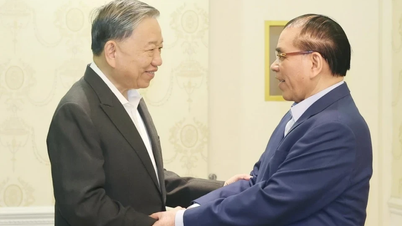





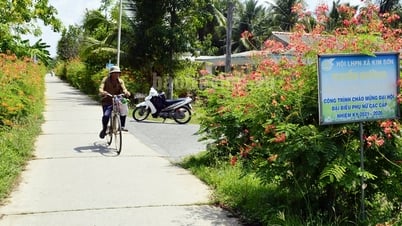

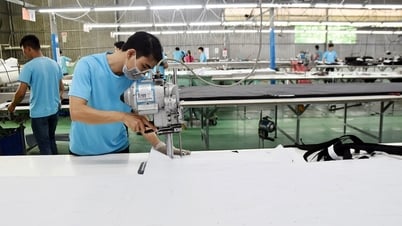








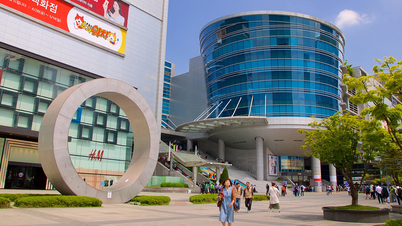










































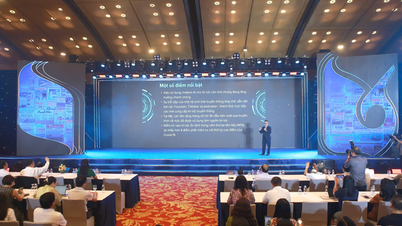















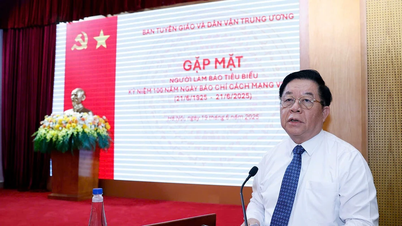

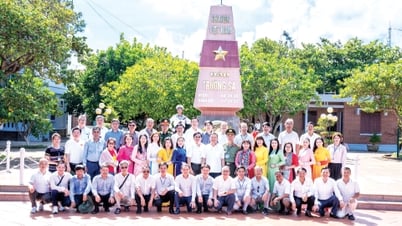















Comment (0)